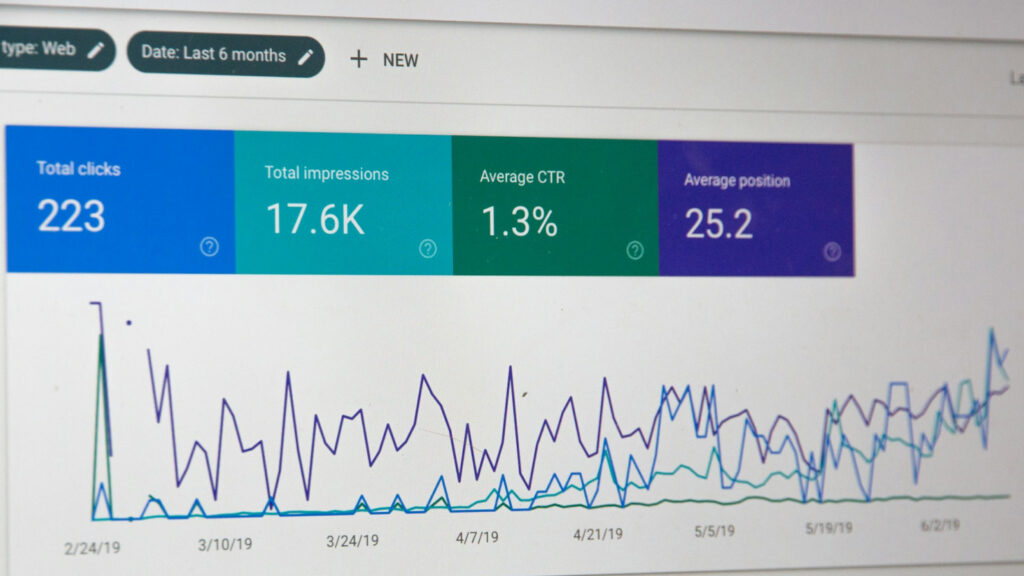
HOME / BLOG / STATISTICS
SEO Statistics 2025: 91+ Stats & Insights [Expert Analysis]
- October 20, 2025
- Bill Nash
- 3:59 pm
Search engine optimization (SEO) is evolving faster than ever. With AI-driven search results, Google’s SGE (Search Generative Experience), and constant algorithm updates, marketers can’t rely on old data anymore. To make informed decisions, you need to know what’s working now — and that’s exactly what these SEO statistics reveal.
Table of Contents
SEO & Market Overview
The global SEO market is anticipated to grow at a compound annual growth rate (CAGR) of about 8.3% from 2024 to 2030.
According to the 2025 “State of SEO” survey by Conductor, 91% of respondents reported that SEO positively impacted website performance and marketing goals in 2024.
Organic search produced on average 33% of overall website traffic across seven key industries in 2024 (per the same Conductor survey).
SEO remains one of the most cost-effective and reliable channels for brand visibility and business growth.
In one list of “100+ SEO stats for 2025”, it was reported that 66% of pages have zero backlinks.
Search Engine & User Behavior
There are over 99,000 searches per second on Google.
Organic search results account for about 94% of all clicks (in one analysis) for search engine results pages (SERPs).
Approximately 68% of online experiences begin with a search engine.
Google owns roughly 89.74% of the search engine market share (in one data set).
On mobile, Google holds about 93.88% of the search engine market share (as per one source).
Ranking & Click-Through (CTR)
The #1 organic result (on Google) receives around 39.8% of all clicks (in one dataset).
If the first organic result is a featured snippet, the CTR can increase, e.g., to about 42.9% in that dataset.
Moving up from position 2 to position 1 can generate approximately 74.5% more clicks in one analysis.
The top three organic search results receive about 68.7% of all clicks in one referenced breakdown.
Only about 0.78% of users click results on Google’s second page, in the referenced analysis.
Mobile, Local & Voice Search
Mobile accounts for approximately 83.58% of all Google visitors (according to one source).
30% of all mobile searches are location-related.
The first 5 organic results in the SERPs account for about 69.1% of all clicks (in one mobile-focused dataset).
On mobile, the first organic listing receives about 6.74% of clicks versus ~8.17% on desktop in that dataset.
In local SEO: 94% of high-performing brands have a dedicated local marketing strategy, compared with 60% of average‐performing brands.
Keywords & Content Length
88.2% of all search queries in the U.S. contain 3 or fewer words (Statista).
Over 29% of keywords with 10K+ monthly searches consist of 3+ words (Ahrefs).
Roughly 8% of searches are phrased as a question (Moz).
Content over 3,000 words wins ~3× more traffic than average-length content (~1.4k words) in one dataset, and ~4× more shares.
70% of brands report that SEO generates more sales on average than PPC.
Backlinks & Off-Page SEO
Over 66% of backlinks are broken (Ahrefs Link-Rot study).
7.4% of pages ranking in the top 10 of Google don’t have a title tag (Ahrefs study).
26% of pages have fewer than three backlinks (from one compilation).
The cost per backlink in one study averaged ~$361.
41% of marketers view link building as the most difficult part of SEO.
Technical SEO
87.7% of websites use HTTPS.
Over 23% of websites use no structured data.
Of sites that use structured data: 67.7% use Open Graph, 52.4% use Twitter Cards, 49.7% use JSON-LD, 39.3% use generic RDFa, 25% use microdata.
In 2025, one source says the top three disruptions in SEO performance are: Generative AI, Google E-E-A-T (Experience, Expertise, Authoritativeness, Trustworthiness) and zero-click searches.
One dataset says that mobile users are less likely to click organic results compared to desktop (~50% less).
AI, Zero-Click Search & Emerging Trends
In 2023, about 13 million American adults claimed to have used AI for search; expected to rise to ~90 million by 2027.
58% of informational search queries trigger AI overviews as the top search results in one dataset.
AI overviews appear in ~47% of Google search results (in one dataset).
AI-generated content does not hurt Google rankings: 86.5% of content in the top 20 is at least partially AI-generated (Ahrefs).
Only about 13.5% of new web content is entirely human-created; the rest includes at least some AI.
While AI content is common, purely AI content rarely reaches position #1 in Google.
Zero-click searches (where users don’t click through to a website) are growing: one dataset shows > 58% of U.S. Google queries are zero-click.
In local SEO: 32% of U.S. adults said they believe AI would provide a better experience/outcome than typical search when looking for a local business.
Local SEO
88% of multi-location marketers are using generative AI within their organizations.
36% of high‐performing brands are using AI “to a great extent” in their marketing, compared to 13% of average‐performing brands.
59% of local agency marketers want to develop their AI and machine-learning skills in 2025.
86% of local marketers say their clients are aware of how new developments in search could impact their business visibility and rankings.
For local SEO, having a dedicated local marketing strategy is a differentiator (94% of high performing vs 60% average performing).
B2B & Enterprise SEO
81% of B2B companies expect to spend at least $7,500 per month on SEO.
70% of marketers believe SEO delivers much better results than PPC.
57% of B2B marketers say SEO has become more effective in the past year.
Over 54% of enterprise brands outsource their SEO campaigns.
43% of B2B SEOs cite limited budget as the biggest hindrance to achieving their objectives.
Having limited in-house SEO skills is the most challenging obstacle to successful SEO, according to 57% of enterprise brands.
For enterprise brands: higher SEO maturity correlates with being more than 3× as likely to report that Google’s AI/SGE rollout (AIO) had a positive impact.
E-commerce & User Behavior
63% of shopping begins online (even if the purchase happens in-store).
43% of people research a product while in a brick-and-mortar store.
43% of e-commerce traffic comes from organic Google search (per one stat list).
70% of users say page speed impacts their willingness to buy from an online retailer.
Conversion rates drop ~4.42% on average with each additional second of page load time (per one data set).
38% of people say they won’t revisit a website if its content or layout are unattractive.
Technical & Performance SEO
40% of users will leave a site that takes longer than three seconds to load (in one compiled stat list).
Pages that rank tend to have more backlinks, more comprehensive content (longer), and better user experience/speed. (General finding across many stats)
In a technical stat list: 8% of searches are framed as questions.
In one data set, 70% of users use more than three words when searching online.
For mobile: 87% of smartphone owners use a search engine daily.
Content Marketing, Strategy & SEO Investment
41% of online experiences start with a search engine (in one list).
71% of B2B shoppers start their research with a search engine.
47% of users interact with 3-5 pieces of content before connecting with a company (in one dataset).
53% of U.S. consumers conduct research with a search engine before purchasing.
41% of marketers say link-building is the hardest part of SEO.
Content marketing strategies are in place in ~84% of organizations, per one broader marketing stat list.
89% of marketers say SEO is successful (per a digital marketing stat list).
For enterprise maturity: organisations with high SEO maturity measure and report on ~3× as many SEO metrics compared to those with low maturity.
Emerging Challenges & Trends
One dataset says that 60% of users claim they discovered a new company or product when searching on their smartphone.
One stat list claims that “there are over 8.5 billion searches on Google each day” (may overlap with other data).
In one dataset, for mobile, the first organic listing receives only ~6.74% clicks (versus desktop ~8.17%).
For AI/SEO: 84% of marketers believe in using AI for SEO by aligning web content with users’ search intent.
62% of organizations use AI for data analysis in their marketing/SEO workflows.
60% of companies use AI to create personalized customer experiences (a stat from one AI SEO list).
Miscellaneous Interesting Facts
For technical SEO: 7.4% of pages ranking in the top 10 don’t have a title tag (Ahrefs study) – underlining how “simple” mistakes persist.
For structured data usage: Only ~49.7% of sites use JSON-LD for structured data (per one dataset).
On mobile vs desktop CTR: Organic CTR on mobile is roughly 50% less than that of desktop (in one dataset).
According to one stat list, 93% of online experiences start with a search engine (slightly different than the 68% figure).
In local SEO: 41% of consumers feel comfortable with businesses using AI to inform & communicate as long as it improves experience.
In the realm of local search: 61% of consumers feel well-informed about AI developments.
For B2B: It takes typically 3-6 months for SEO to start delivering results (per one source).
One analysis says SEO drives 1,000%+ more traffic than organic social media (in one dataset).
One stat: 53.3% of all website traffic comes from organic searches (in one dataset).
One list: 1,000s of searches occur daily — on average each internet user performs ~3-4 searches per day.
Additional Stats
One dataset: Featured snippets have the highest CTR at ~42.9%.
On average, users perform 3-4 searches daily (in one referenced stat).
In local/agency marketing: 59% of local agency marketers plan to develop AI/ML skills in 2025.
One dataset: Organic search is the second highest traffic channel at ~29% (per one analysis).
One stat list: Google only displays ads on about 20% of all search results (per one dataset).
According to one compilation: 93% of traffic to websites is from search engines (though that may be slightly inflated).
In one list: 75% of users never go past the first page of search results.
One stat: 70% of users say a site’s page-speed impacts their willingness to buy from an online retailer.
52% of sources cited in Google AI Overviews rank in the top 10 results (per a stat in one list).
One dataset: 92.3% of users access the internet using a mobile phone.
Ready to Grow Your Business?
At Marketing LTB, we specialize in helping businesses like yours thrive online. From strategic digital marketing and branding to web development and social media management, we offer the tools and expertise to elevate your brand and drive real results.
Let’s build something amazing together, get in touch with us today!

About Marketing LTB
Marketing LTB is a full-service marketing agency offering over 50 specialized services across 100+ industries. Our seasoned team leverages data-driven strategies and a full-funnel approach to maximize your ROI and fuel business growth. Discover how our expertise can drive revenue for your business>

About the author, Bill Nash
Bill Nash is the CMO of Marketing LTB with over a decade of experience, he has driven growth for Fortune 500 companies and startups through data-driven campaigns and advanced marketing technologies. He has written over 400 pieces of content about marketing, covering topics like marketing tips, guides, AI in advertising, advanced PPC strategies, conversion optimization, and others.
